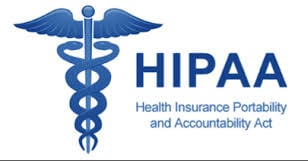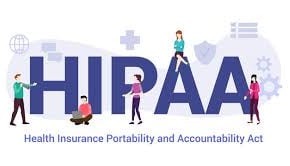Introduction
In the age of digital transformation, healthcare organizations must protect patient data against an ever-growing range of cyber threats. HIPAA was established to safeguard sensitive health information. Let’s break down what it means for healthcare providers and how cybersecurity measures can keep these systems compliant and secure.
Abstract
Overview
HIPAA mandates strict security measures to protect health information. From encryption of data in transit to access controls and audit logs, HIPAA ensures that healthcare organizations implement the necessary protections to prevent breaches. As digital health records and telemedicine grow, so do the risks associated with their security.
Cybersecurity is crucial for all industries, especially in sectors like healthcare where data protection is not only a requirement but a matter of trust. HIPAA compliance stands at the forefront, ensuring patient information is kept secure, preventing unauthorized access or data breaches. In this blog, we will explore how HIPAA affects data protection in healthcare and how SecureKnots' services help organizations maintain compliance.


[Disclaimer: This blog post is for informational purposes only and should not be construed as legal or financial advice. Organizations should consult with legal counsel and regulatory authorities to ensure compliance with reporting requirements.]
Mandatory
HIPAA sets requirements for data security practices and standards, including encryption, secure communication protocols, and employee access control. Healthcare entities are legally required to ensure that all patient information is protected according to these guidelines.
Applicability
HIPAA applies to healthcare providers, insurers, business associates, and any entities that handle patient information. Compliance is mandatory for these organizations, and failing to adhere can result in severe penalties, including fines and reputational damage.
Regulatory or Company Interest?
Organizations must adhere to HIPAA not only to avoid fines but also to build trust with patients. Non-compliance can lead to significant legal and financial consequences.
Key Guidelines
Key guidelines under HIPAA include implementing data encryption, conducting regular audits, maintaining employee training, and ensuring third-party vendors are also compliant with security measures.


Key Implications
The implications of not adhering to HIPAA guidelines are severe—data breaches, loss of patient trust, and significant financial penalties can impact the bottom line and the reputation of healthcare providers.
Countries with Adoption or Influence
HIPAA compliance is primarily mandated in the U.S. However, its influence extends globally, particularly in regions that focus on data protection and privacy.
International Frameworks Influenced
HIPAA has shaped international frameworks such as the EU's GDPR by emphasizing the protection of personally identifiable information (PII).
Regional and Industry-Specific Frameworks
While HIPAA is specific to healthcare, regional frameworks like the European Union’s GDPR or Canada's Personal Health Information Protection Act (PHIPA) similarly focus on protecting patient data.
Secure Your Digital Identity with SecureKnots
Contact us to learn more about our cybersecurity services and ensure your organization meets cybersecurity requirements.


Conclusion
Compliance with HIPAA is not just a legal obligation but a commitment to patient trust and safety. The healthcare industry must continuously adapt its cybersecurity posture to ensure the confidentiality, integrity, and availability of sensitive patient data.
How SecureKnots Can Help
At SecureKnots, we provide comprehensive services to ensure HIPAA compliance and protect your healthcare systems. Our offerings, such as VAPT (Vulnerability Assessment and Penetration Testing), Security Awareness Trainings, and Ransomware Attack Simulations, are designed to strengthen your defenses and safeguard sensitive data. With our GRC consulting, we help organizations navigate the complexities of regulatory frameworks like HIPAA, ensuring continuous compliance and mitigating risks associated with cyber threats. Let us help you stay secure and compliant.
This blog focuses on the importance of securing employee access to internal systems while showcasing how SecureKnots can help organizations strengthen their access controls. It is informative and engaging, highlighting the significance of HIPAA Let me know if you need further adjustments!
Thank you for your attention! If you have any inquiries about cybersecurity requirements or need expert guidance, please don't hesitate to contact SecureKnots.
This should wrap up the blog and fulfill the promise made in the previous one!
HIPAA-Audit and compliance
In the healthcare world, HIPAA (Health Insurance Portability and Accountability Act) is the law of the land when it comes to protecting patient data. We’ll discuss how HIPAA compliance ensures that sensitive health information is properly stored, accessed, and transmitted to maintain confidentiality.
WITH OUR SHORT BLOGS
STAY UP TO DATE
Copy Rights @ 2023 SecureKnots. All Rights Reserved.
CONTACT US
Contact@Secureknots.com
USA
+1-302-601-2346
+1-302-608-6708
INDIA
080-31658865
GET IN TOUCH
